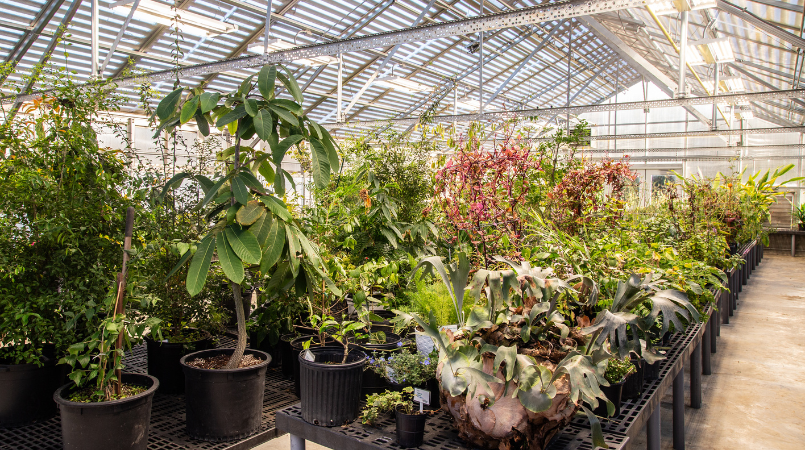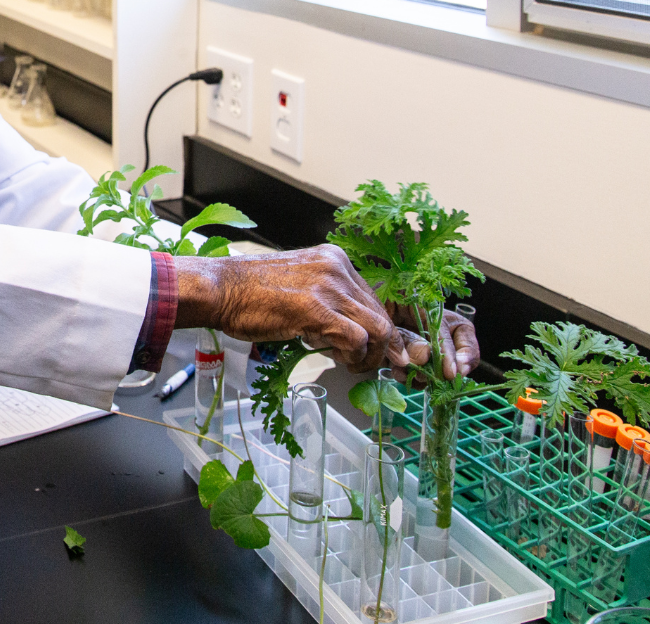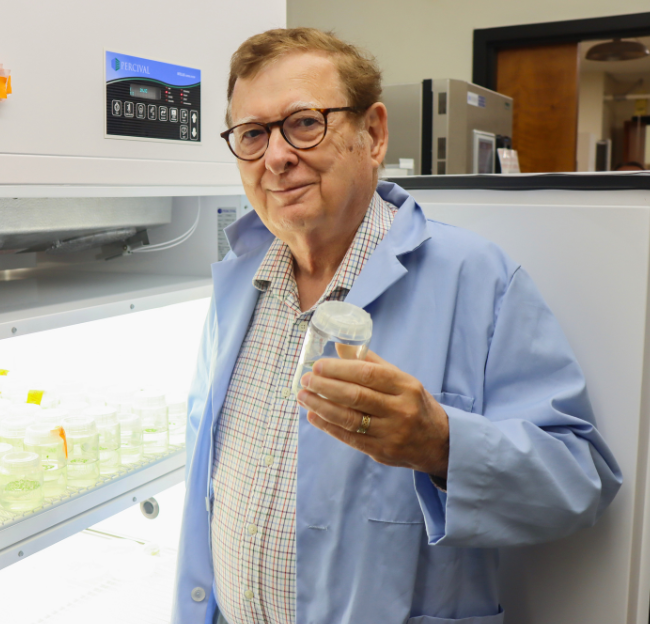Botanical Research
Our botanical research combines decades of expertise in plant science with advanced techniques to explore the medicinal and agricultural potential of natural products.

Harnessing the power of botanical research
At NCNPR, botanical research is centered around understanding the unique properties of plants and their potential applications. Our work ranges from studying plant physiology to identifying bioactive compounds that may offer therapeutic benefits or improve agricultural practices. This focus on thorough, methodical study of plants helps us uncover natural solutions that can support health, sustainability, and the development of effective, safe products.
What sets us apart from other research centers is our hands-on approach to plant research, visible through our extensive plant repository of over 15,000 speciments, living collection of over 1,000 living plants, and robust seed bank. This allows us to authenticate plant materials and exlore their full potential in a way that ensures both quality and consistency.
Our work is driven by the belief that plants hold untapped solutions, whether for human health or other sustainable agricultural practices, and we are committed to understanding and harnessing that potential with careful, data-driven research.
Our botanical research


Taxonomy
Scientists skilled in taxonomy, the science of classification, meticulously identify and categorize plant species, laying the groundwork for subsequent analyses and product development. Employing morphological, molecular and chemical methods, researchers at NCNPR are able to characterize plant materials, which is necessary for detecting contaminants, adulterants and supporting regulatory efforts.

Plant Physiology
Plant physiology is the study of the biochemical physiological processes in plants, including the metabolism, growth, development and responses to environmental factors. By studying the underlying physiological mechanisms in plants, researchers can identify new compounds and pathways that may have practical applications. NCNPR’s plant physiology research has included working with the agricultural industry to manage pests, as well as developing intellectual patents for natural product-based agricultural solutions such as fungicides, insecticides and pesticides.
Botanical research highlights
Investigating antibacterial compounds from Brazilian propolis for aquaculture
Our team investigated the antibacterial potential of constituents from Brazilian propolis against two bacteria, Edwardsiella ictaluri and Flavobacterium covae, which significantly affect farm-raised channel catfish. We identified three active compounds—vestitol, neovestitol, and methylvestitol—with effective minimum inhibitory concentrations against F. covae, showing promise as environmentally friendly antibacterial agents for aquaculture.
Assessing the quality and adulteration of psychedelic mushroom products
Researchers developed a LC-QToF-MS method to analyze key compounds—IBA, MUS, muscarine, psilocin, and psilocybin—in Amanita muscaria and Psilocybe spp. mushrooms, evaluating the quality of psychedelic mushroom products. The method revealed varying levels of psilocin and psilocybin in Psilocybe samples, and IBA, MUS, and muscarine in Amanita and found inconsistencies between product labels and actual contents.
Exploring the dual benefits of resveratrol and pterostilbene for crops and human health
We examined the dual benefits of resveratrol and pterostilbene for both crops and mammals. These compounds are shown to offer antimicrobial properties to plants, enhancing resistance to bacterial and fungal pathogens, while also providing nutraceutical benefits to humans, including antioxidant, anti-aging, and anti-cancer activities.
Botanical research team
Suman Chandra
- Principal Scientist/Research Production Manager in NCNPR and Research Professor of BioMolecular Sciences
Stephen Duke
- Research Professor, Temporary
Hemant Lata
- Principal Scientist and Research Professor in BioMolecular Sciences
Nisha Mishra
- Senior R&D Biologist
Iffat Parveen
- Senior Research Scientist
Natascha Techen
- Principal Scientist
